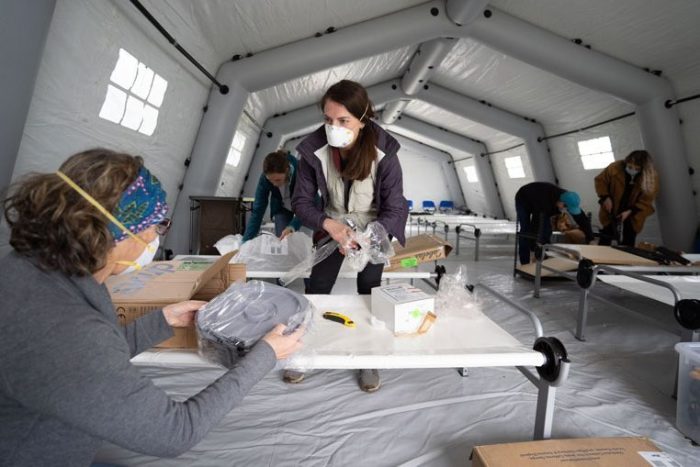COVID-19, drug overdoses huge factors in declining American life expectancy in 2020: CDC

Americans' life expectancy at birth fell 1.5 years to 77.3 years from 2019 to 2020, the lowest level since 2003. The shift is primarily driven by COVID-19 and unintentional deaths primarily from drug overdoses, new data released by the U.S. Centers for Disease Control and Prevention indicates.
“Mortality due to COVID-19 had, by far, the single greatest effect on the decline in life expectancy at birth between 2019 and 2020, overall, among men and women, and for the three race and Hispanic-origin groups shown in this report,” researchers wrote in the CDC’s Provisional Life Expectancy Estimates for 2020 released this month.
“Among the other causes of death that negatively contributed to the change in life expectancy, unintentional injuries, homicide, and diabetes affected all three Hispanic origin and race groups. For all three populations, unintentional injuries had the greatest effect out of these three causes. … Increases in unintentional injury deaths in 2020 were largely driven by drug overdose deaths."
Life expectancy for males dropped to 74.5 years in 2020 from 76.3 years in 2019. Meanwhile, female life expectancy dropped to 80.2 years in 2020 from 81.4 years in 2019, the data shows.
Racial and ethnic mortality disparities in life expectancy also increased in 2020, wiping out gains closing those gaps in previous years.
Hispanic life expectancy, which is higher than the life expectancy of whites, decreased by three years, dropping from 81.8 to 78.8 years. This is the largest decline in life expectancy among racial and ethnic groups, the report said.
The CDC found that COVID-19 contributed 90% to the change in life expectancy for the Hispanic population.
According to the data, 4.2% of the drop in life expectancy for the Hispanic population was caused by unintentional injuries, 1.8% by diabetes and 1% due to homicide.
Blacks followed closely behind Hispanics with a 2.9-year decrease in life expectancy, falling from 74.7 years to 71.8 years over the period.
The decline in black life expectancy was primarily caused by COVID-19 (59.3%), followed by unintentional injuries (11.9%), homicides (7.7%), heart disease (5.9%) and diabetes (3.6%).
The white population experienced a 1.2-year decline in life expectancy from 78.8 years in 2019 to 77.6 years in 2020, representing the smallest decline among racial demographics.
When broken down by sex, Hispanic men suffered the largest decrease in life expectancy, showing a decline from 79.0 years to 75.3 years. They were followed by black men, whose life expectancy declined from 71.3 years to 68 years. Black men have the lowest life expectancy of any demographic highlighted in the report.
Studies have suggested young black men died at a higher rate during the pandemic than any other demographic due to a chronic illness crisis.
Black females saw their life expectancy dive from 78.1 years to 75.7 years, which is only slightly higher than the life expectancy of white males. White male life expectancy fell from 76.3 years to 75 years over the period.
White females saw their life expectancy fall from 81.3 years to 80.2 years. Hispanic females had the highest life expectancy in the report, falling from 84.4 years to 82.4 years.





























